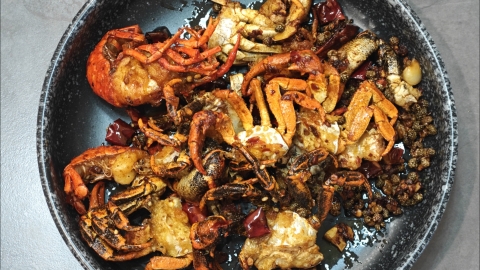Can I eat crab during lactation?
Generally speaking, lactating women can consume crabs in moderation, but should pay attention to the freshness of the crabs, cooking methods, and their own physical condition, to avoid improper consumption affecting themselves and their baby. Detailed analysis is as follows:

Crabs are rich in high-quality protein, calcium, iron, and other nutrients. Eating them in moderation can help lactating women replenish nutrition, promote physical recovery, and the protein can pass through breast milk to provide essential nutrients for the baby's growth and development. From the perspective of food properties, fresh and thoroughly cooked crabs themselves pose no obvious harm, and reasonable consumption usually does not cause adverse reactions.
However, crabs are cold in nature, and excessive consumption may cause gastrointestinal discomfort such as abdominal pain and diarrhea in lactating women. It may also affect the baby through breast milk, potentially leading to symptoms such as diarrhea and crying in the baby. Therefore, lactating women should control the amount of crab consumption, and should not eat more than one crab at a time.
When consuming crabs, fresh varieties should be selected and must be thoroughly steamed or boiled; raw crabs and drunken crabs should be avoided. In daily life, lactating women should maintain a balanced diet, consume more foods rich in protein and vitamins, ensuring both breast milk quality and their own health.







